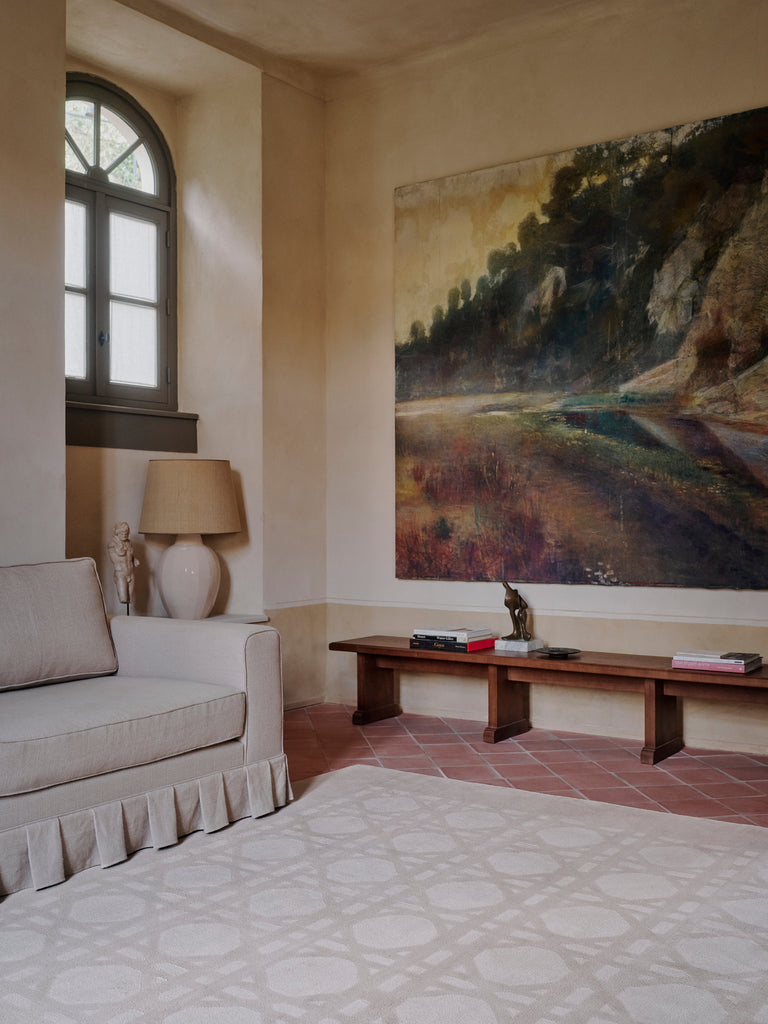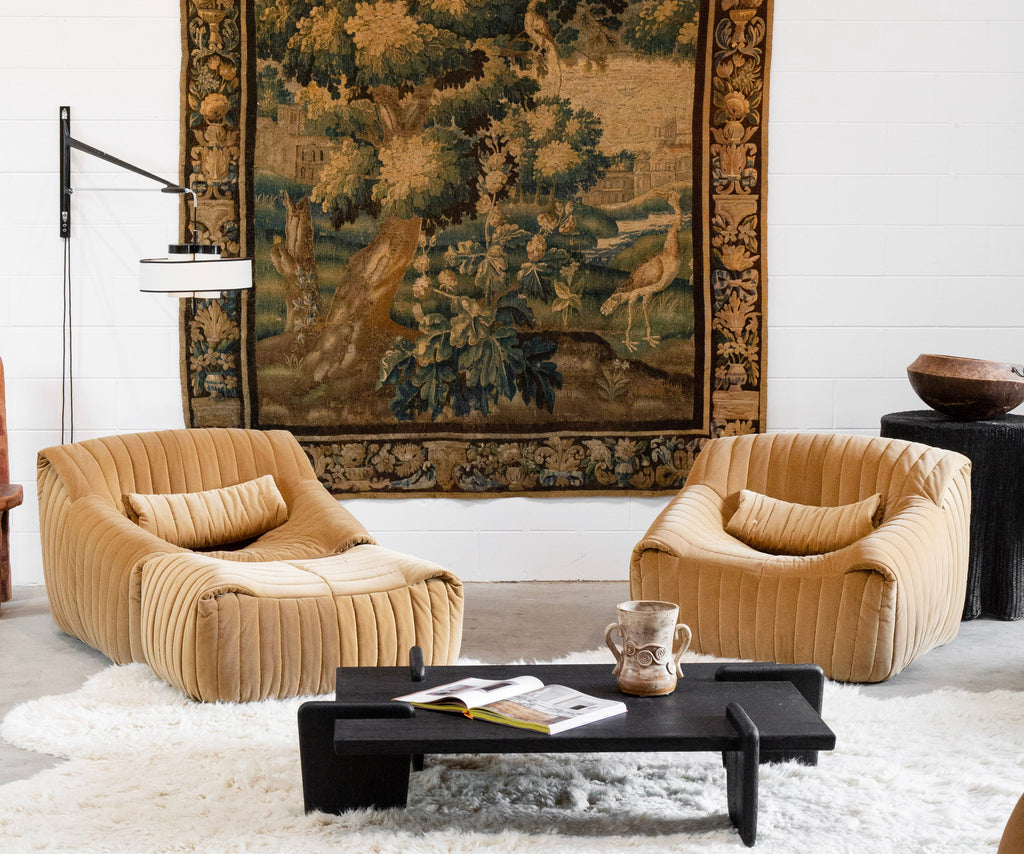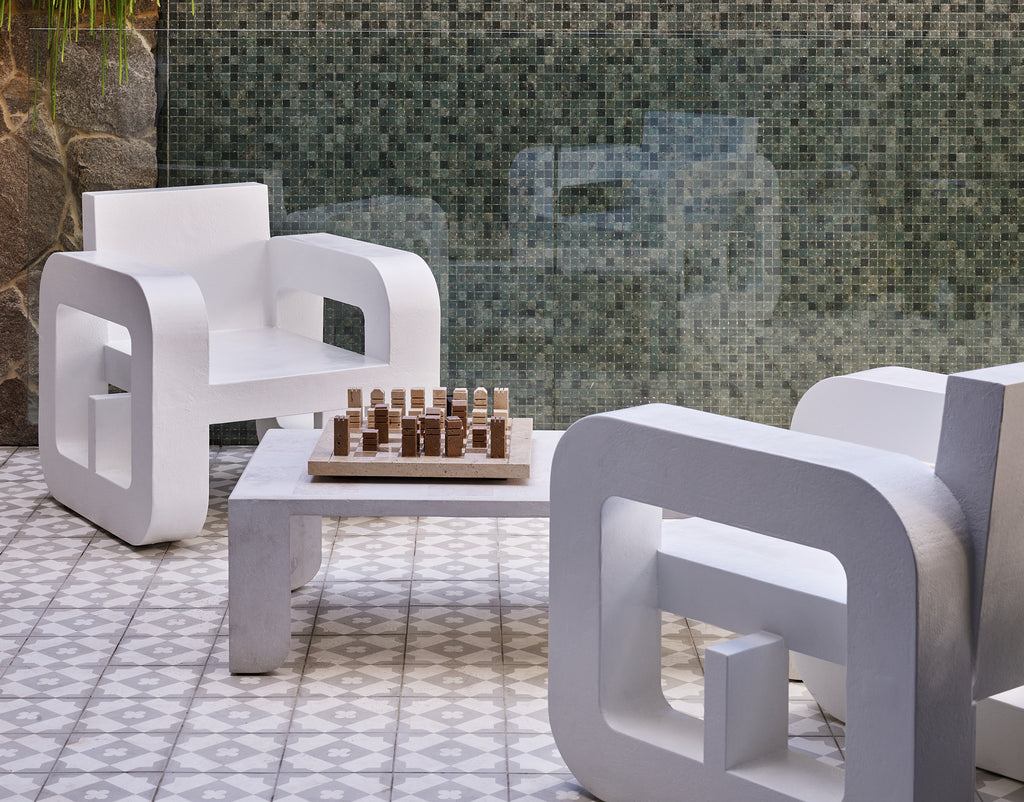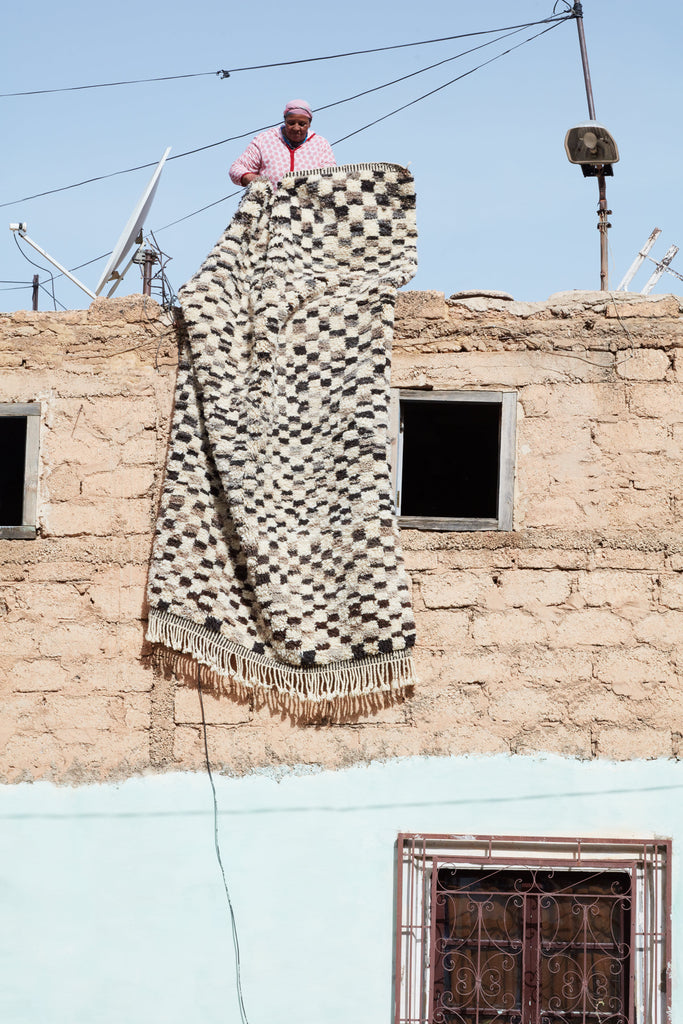"Conscious living is at the heart of Tigmi Trading. We believe sustainable design and lifestyle is no longer a choice, it impels modern living. In today’s immediate world, it is crucial that every purchase should be considered, and we have pride in the knowledge that our timeless pieces are sourced ethically, designed thoughtfully and crafted with the intention to last. With this comes the opportunity to share a story that we hope will resonate and invite another dimension of beauty and soul into your homes and lives. We are committed to creating positive change and are always searching for better practices to ensure this.”
Founded upon the pillars of great art and design, we believe in the ethical and sustainable value of everyday objects, without compromise on function or aesthetics. With a dedication to quality, longevity, and ethical practices, we anchor ourselves in the time-honoured traditions of craftsmanship and considered design decisions.
Every piece in our collection is chosen to evoke and inspire through unique design principles that are grounded in human connection.
Our focus for the future includes supply chain transparency, reduced virgin resource use, carbon neutrality, circular solutions and continued support of artisanal and refugee communities.
Through our passion for social responsibility and environmental protection, we partner with two not-for-profit organisations, GoodWeave and Reforest Now.
GoodWeave is a certified NGO that works to end child-labour in the rug industry ensuring a transparent and ethical production process, by helping to educate children and protect adult works rights.
Reforest Now is an environmental NGO based locally in Byron Bay that protects, conserves and regenerates our precious and bio-diverse rainforests. TIGMI plant a trees for every subscription and every rug sold, and are working on specific calculations of our CO2 outputs to ensure we are offsetting our impact successfully in our aim toward carbon neutrality.
Our goals, objectives and policies in this area are being created in collaboration with sustainability consultancy Sonzai Studios and are internationally benchmarked through the United Nations Sustainable Development Goals for impactful progress.
We are committed to full transparency in this process and any questions can be emailed directly to hello@tigmitrading.com
The pillars of sustainability are interlinked, and for strong sustainability success they work symbiotically together. Business initiatives often cross over into multiple pillars, but for goal setting and concise strategy creation, they are split up into these sectors. Not one pillar is more important than another, yet it is the view of industry experts that for strong sustainability, all initiatives actually sit within the environmental pillar.
After all, without a healthy well-functioning planet, there cannot be healthy, happy people, communities or businesses. Companies choose to call the pillars various things- ethics, environment and economics for example. We have chosen to use people, planet and partnerships.

People
The ‘people’ pillar of sustainability encompasses initiatives that are focused on ethical production methods and acknowledge the importance of the human-centric sector of production supply chains, diversity and inclusiveness.
We believe that all persons involved in the production of our pieces should be empowered and protected through their work. We work closely with our offshore artisans, and have Tier 2 transparency of our Australia-based production.
Our initiatives within this pillar focus on implementing a Supplier Code of Conduct for new and existing suppliers and achieving further transparency of our tier 2 & 3 offshore suppliers.

Planet
The ‘planet’ pillar of sustainability acknowledges the intrinsic value of the environment. The initiatives within this pillar prioritise the responsible use of natural resources, measuring and reducing impact and offsetting the last mile. At Tigmi this is done through producing quality objects made to last, supporting the circular economy through our curation of vintage items, antiques and restored objects, the use of green energy, recycled packaging, and waste management. Our initiatives within this pillar focus on more accurate impact measurement,
increasing the use of recycled materials, and assisting our customers keep their Tigmi pieces in circulation as long as possible through education and business partnerships.

Partnerships
We believe it is through working together that we will create the future we want for humanity and future generations. This is emphasised through the United Nations Sustainable evelopment Goal No.17- partnerships for the goals. We see business partnerships as a means to economically empower those we work with.
Throughout the history of our business we have always sought ways to support the communities we connect with, be that artisan communities offshore, or our local women’s shelter in Byron. Our initiatives in this area are to solidify a charity partnership strategy and find manufacturing-specific ways to empower and upskill disadvantaged and refugee communities.
In 2015, the United Nations General Assembly created 17 Sustainable Development Goals (SDG’s) as a “blueprint to achieve a better and more sustainable future for all”, with the aim to achieve these interlinked goals by 2030. Tigmi’s goals, objectives and policies are internationally benchmarked through the United Nations Sustainable Development Goals for impactful progress.
We have identified five key SDGs that best align with oura reas of focus and impact, utilising these to inform our short, mid and long term goals:
No.11 Sustainable cities and communities
No.12 Responsible consumption and production
No.13 Climate Action
No.16 Peace, justice and strong institutions
No.17 Partnerships for the goals

People Objectives
I. Continue to expand transparency across the supply chainof Tier 1,2 & 3 manufacturers, ensuring people are protectedand empowered within their work.
II. Implement a supplier Code of Conduct to ensure allmanufacturers adhere to Tigmi’s standards of ethical,environmental and societal sustainability.
UN SDG’s
No.11 Sustainable cities and communities
No.12 Responsible consumption and production
No.16 Peace, justice and strong institutions
No.17 Partnerships for the goals

Planet Objectives
I. Measure, reduce and recalibrate our overall environmental impact.
II. Create circular strategies for furniture and rug sectors ofthe business.
III. Increase the use of recycled materials across the entire supply chain.
IV. Eliminate single-use plastics, and transition to packaging solutions across the supply chain that are reusable orresponsibly break down at their end of life.
UN SDG’s
No.12 Responsible consumption and production
No.13 Climate Action
No.17 Partnerships for the goals

Partner Objectives
I. Support artisanal and refugee communities through charityand manufacturing partnerships
II. Become B-Corp certified
UN SDG’s
No.17 Partnerships for the goals














